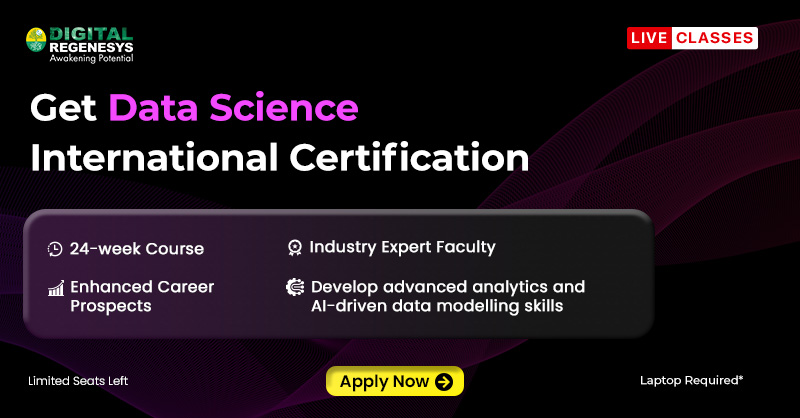Data Science Courses with Focus on Big Data, Neural Networks, and NLP

Data science is one of the fastest-growing fields in the digital world, with businesses, governments, and organisations relying on it to interpret massive volumes of data. Among its many branches, three areas are especially important for modern applications and career growth: Big Data, Neural Networks, and Natural Language Processing (NLP). These fields are often misunderstood – many assume Big Data is only about storage, that neural networks are simply AI, or that NLP is limited to chatbots. Such misconceptions often create confusion for learners choosing data science courses.
In this article, we will clarify these concepts, explain their role in data science, and highlight how they open doors to rewarding career opportunities.
What Are Data Science Courses?
Data science courses are structured programmes designed to equip learners with the skills required to collect, analyse, and interpret data. These courses usually combine mathematics, statistics, programming, and domain-specific knowledge. For beginners, they provide a foundation in coding (using languages like Python or R) and statistical modelling. For advanced learners, they include specialised modules on areas like deep learning and artificial intelligence.
These courses aim not just to build technical skills but also to equip students for real-world challenges. This means working with industry tools, handling real datasets, and applying analytical techniques to solve practical problems.
Here are some of the core elements learners often encounter in general data science courses:
- Programming Foundations – Python and R are the most common languages, used to clean, analyse, and visualise data.
- Statistics and Probability – These form the backbone of predictive analysis and model building.
- Data Visualisation – Tools like Tableau, Power BI, and Matplotlib help present insights in a clear manner.
- Machine Learning Basics – Introduction to algorithms and predictive models.
While these basics are crucial, modern industries also require expertise in advanced areas such as Big Data, Neural Networks, and NLP, which we will now explore in detail.
Find out the Top 10 Data Science Short Courses for 2025-26 here!

Focus Areas in Data Science Courses
Specialised data science courses highlight three powerful domains that define today’s digital transformation – Big Data, Neural Networks, and NLP. Understanding these not only clears up common misconceptions but also helps learners see how each connects to career opportunities.
Focus Area 1: Big Data
Big Data refers to extremely large sets of structured and unstructured data that traditional systems cannot handle. The importance of Big Data lies in its ability to provide actionable insights when processed properly. For example, retailers use Big Data to study customer behaviour, while healthcare institutions rely on it for patient diagnosis trends.
Here are the key areas covered in Big Data-focused courses:
- Definition and Importance of Big Data – Big Data is about more than size; it involves capturing, storing, and analysing data that grows too complex for standard tools. It allows organisations to predict trends, improve decision-making, and personalise services.
- Tools and Technologies Covered – Learners often work with platforms such as Hadoop, Spark, and cloud-based storage systems. These tools are essential for processing terabytes or petabytes of data efficiently.
- Job Roles Requiring Big Data Skills – Graduates can enter roles like Big Data Analyst or Data Engineer, where responsibilities include managing large-scale data pipelines, optimising storage, and ensuring that data is ready for analysis.
Focus Area 2: Neural Networks
Neural Networks are at the heart of artificial intelligence and machine learning. They simulate the way the human brain works, allowing machines to recognise patterns and generate predictions. Despite their complexity, they are widely used in applications such as image recognition, recommendation systems, and even fraud detection in banking.
Courses focusing on neural networks cover:
- Explanation of Neural Networks in AI and Machine Learning – Neural networks form the basis of deep learning, where models are trained to recognise patterns across massive amounts of data. They underpin breakthroughs in computer vision and natural language understanding.
- Key Concepts Taught – Learners are introduced to deep learning, TensorFlow, PyTorch, and model optimisation techniques. These platforms make it possible to build and train neural networks with real-world datasets.
- Career Roles – Neural network expertise leads to careers such as AI Engineer and Deep Learning Specialist. These roles focus on building systems that can learn and adapt autonomously.
Focus Area 3: Natural Language Processing (NLP)
NLP acts as a link between human communication and computer interpretation. It powers technologies like Google Translate, Siri, and sentiment analysis on social media. While many people think of NLP as just chatbots, its applications extend far beyond that.
Here are the typical learning areas in NLP courses:
- Introduction and Real-World Applications – NLP is used in text classification, voice recognition, language translation, and customer service automation. It allows systems to understand and generate human-like language.
- Techniques Covered – Learners study text mining, tokenisation, sentiment analysis, and the use of advanced models like Transformers (e.g., BERT, GPT). These techniques help in processing large text-based datasets.
- Career Opportunities – NLP opens pathways to becoming an NLP Engineer or AI Researcher, with opportunities in industries like healthcare, e-commerce, and technology.
Know the Fundamentals of Data Science here!
Benefits of Data Science Courses
Data science courses that focus on Big Data, Neural Networks, and NLP provide learners with an advanced edge in the job market. Unlike general courses, these programmes prepare students for specialised roles in cutting-edge technologies.
The following are key benefits learners can expect:
- Competitive Edge in Careers – With industries demanding advanced expertise, professionals trained in these areas stand out in recruitment processes.
- Hands-On Project Learning – Specialised courses usually involve working on real-world projects such as building recommendation systems, designing chatbots, or processing massive data sets.
- Opportunities in Emerging Tech Sectors – Sectors like AI, robotics, and fintech are always looking for talent with advanced data science knowledge. These courses make learners job-ready in such areas.
Career Opportunities After Data Science Courses
Graduating with expertise in Big Data, Neural Networks, and NLP prepares learners for roles that are central to the digital economy. Here are some of the most sought-after career paths:
- AI/ML Engineer – Designing intelligent systems and predictive models for industries like finance, healthcare, and retail.
- Big Data Analyst / Engineer – Handling massive data flows, cleaning, and structuring information for insights.
- NLP Specialist – Developing language-based applications like automated translators or speech-to-text tools.
- Data Scientist in Advanced Domains – Applying deep learning and advanced models to solve industry-specific problems.
Read more on Why Data Science Short Courses Boost Careers here!
Choosing the Right Data Science Course
With numerous programmes available, learners must be selective. Choosing the right data science course depends on personal goals and career aspirations.
Here are some factors to keep in mind:
- Curriculum Content – Ensure the course covers Big Data, Neural Networks, and NLP modules with practical assignments.
- Practical Exposure – Look for hands-on projects that allow real application of concepts.
- Certifications and Recognition – Accredited certifications carry weight when applying for jobs.
- Online vs Classroom Options – Online courses provide flexibility, while classroom settings may offer deeper collaboration.

Conclusion
Data science is no longer just about statistics and coding; it is a field driven by specialisations like Big Data, Neural Networks, and NLP. These areas not only define the future of technology but also create unmatched opportunities for learners willing to dive deeper.
At Digital Regenesys, we offer the Data Science course that covers these focus areas in detail. Our course is designed to prepare learners for real-world challenges through practical projects and industry-relevant skills. If you want to build a career in one of the most rewarding fields of the future, now is the time to take the step.
Enrol in our Data Science course today and prepare for a future-ready career.
Last Updated: 14 October 2025